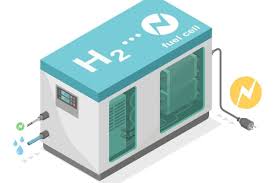EU explains why it still recognises Putin as Russia's president

The European Commission building. Photo: Getty Images
The European Commission has explained that the reason why the EU has not refused to recognise Vladimir Putin as Russia's "president" is because not all member states have reached a consensus on this issue.
Source: Peter Stano, spokesperson for the EU External Action Service, at a briefing in Brussels, as reported by European Pravda
Details: Stano said the EU as such does not have the authority to recognise or not recognise anyone's authority, and this sort of decision is traditionally made by member states.
Advertisement:
Quote: "Of course, when the member states in unanimity by 27 of them say that they don't consider someone a legitimate representative of a country, like we did in the case of the Syrian leader, Assad, or the dictator in Belarus, Lukashenko, then we can have this position.
In the case of Russia, there is no EU-wide position agreed by 27 that says we do not see Putin as a legitimate representative of Russia.
The fact of life is that he is sitting in the Kremlin. From the Kremlin, he is directing one of the most violent and most bloody aggressions in the recent history of Europe – the aggression against Ukraine."
Details: Stano noted that the EU expressed a consensus position on the so-called "presidential elections" in Russia in a statement of 18 March, which was agreed by 27 member states. In this statement, the EU criticised the Russian "elections" as being held with numerous restrictions, without the participation of a real opposition and taking place, among other things, in the occupied territories of Ukraine.
"So again – the EU's positions when it comes to Venezuela, Belarus and Syria, for example, were agreed by 27 member states in defining how we see those people remaining in power... In the case of Russia... there is no common EU-wide agreed position on whether we recognise Putin as a legitimate president," Stano said.
Stano also assured journalists that the attendance of several EU diplomats at the so-called "inauguration" of Vladimir Putin on Tuesday did not call into question the EU's position on supporting Ukraine.
After the fraudulent "elections" in Russia, Putin lost his legitimacy as president of that country, so European Pravda no longer uses the term "president" to refer to this person. Here we justify and explain the importance of this change.
Support UP or become our patron!


 Malaysia
Malaysia Argentina
Argentina  Australia
Australia  Austria
Austria  Brazil
Brazil  Canada
Canada  Germany
Germany  Ireland
Ireland  Italy
Italy  Mexico
Mexico  New Zealand
New Zealand  Poland
Poland  South Africa
South Africa  United Kingdom
United Kingdom  United States
United States 
























